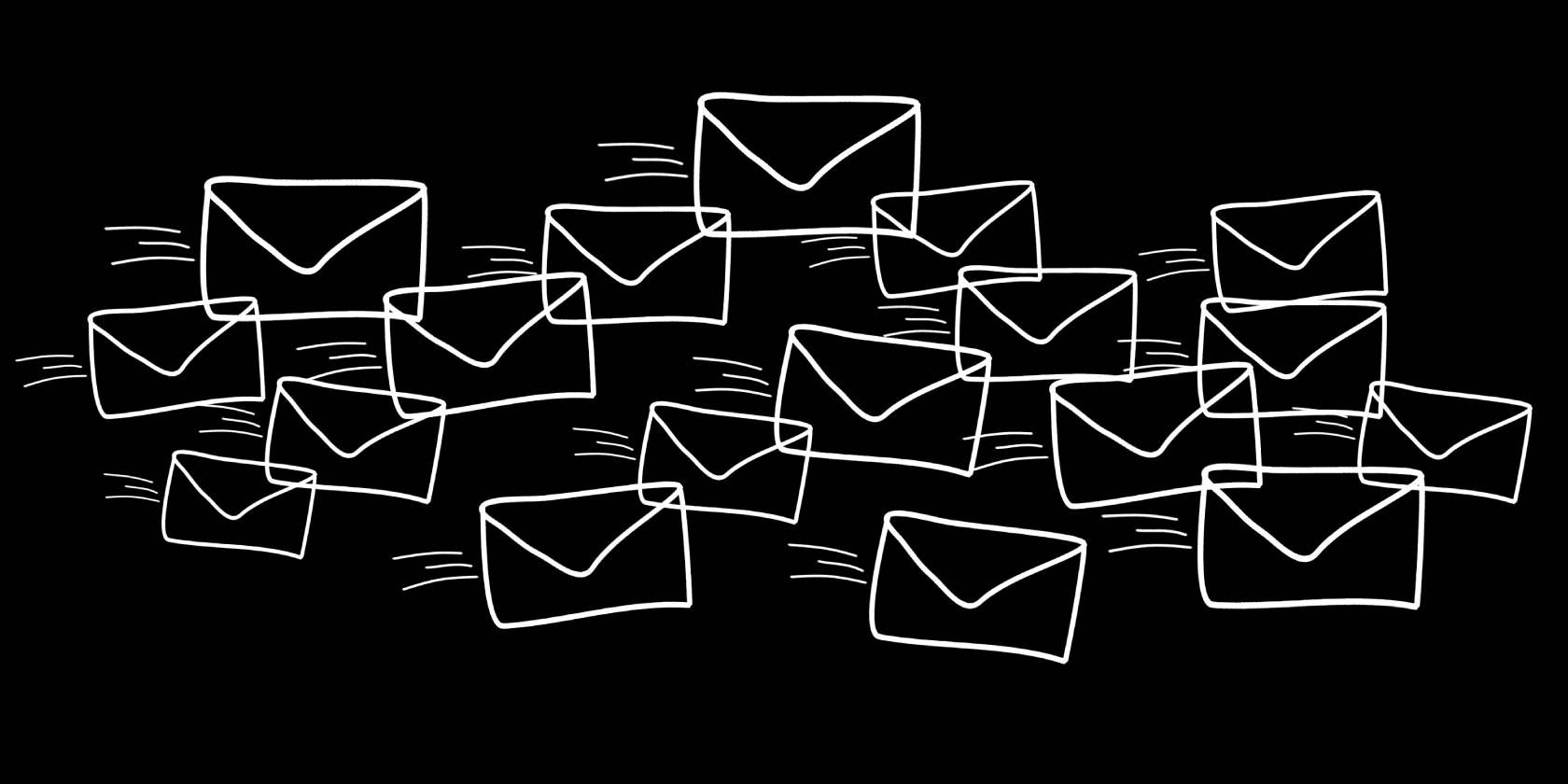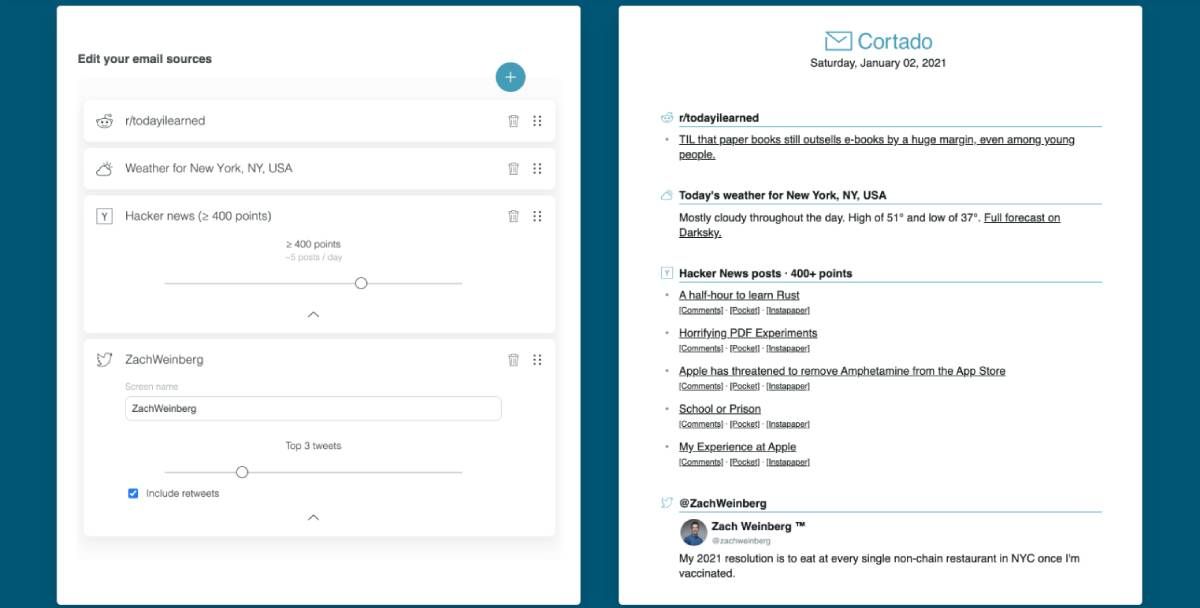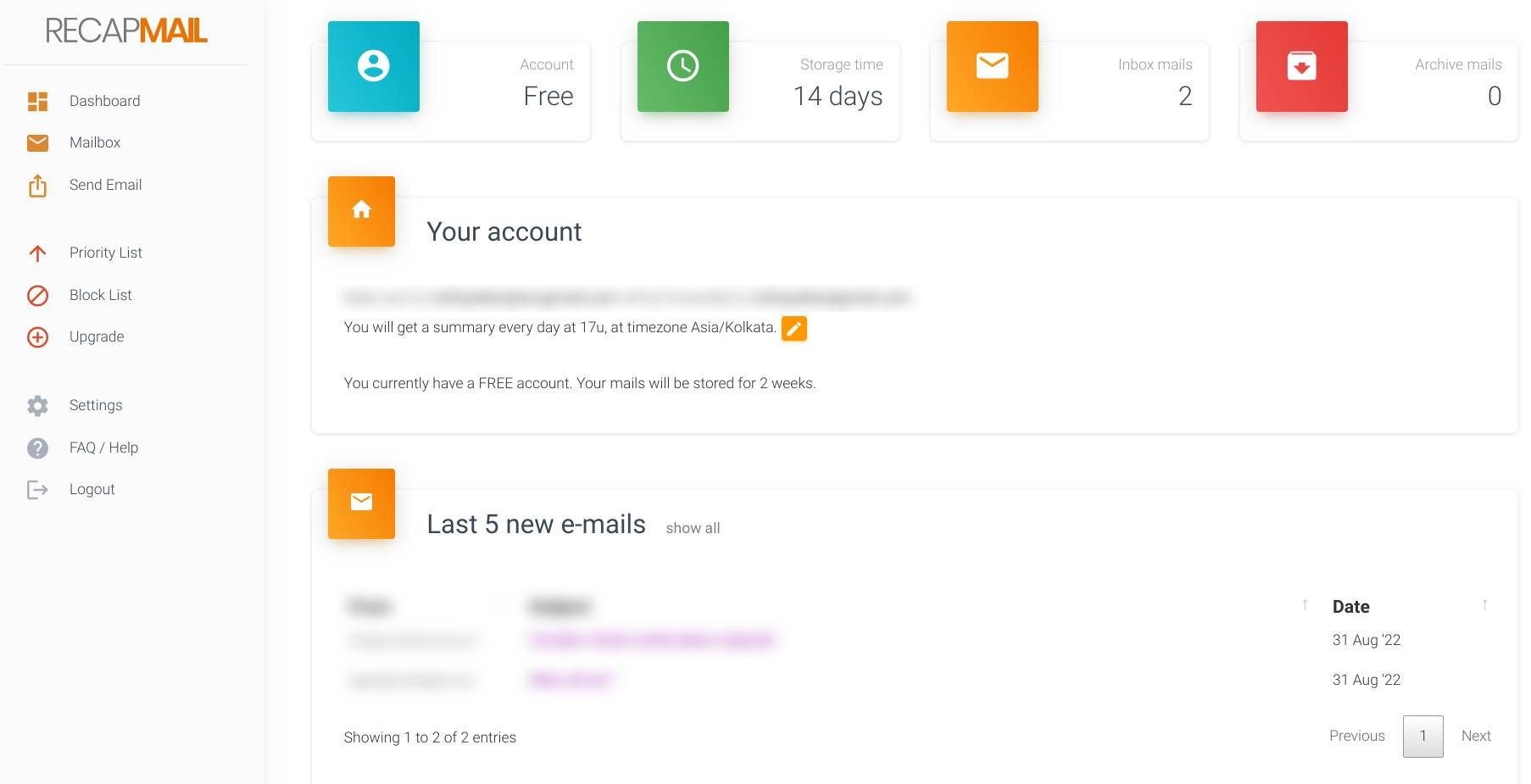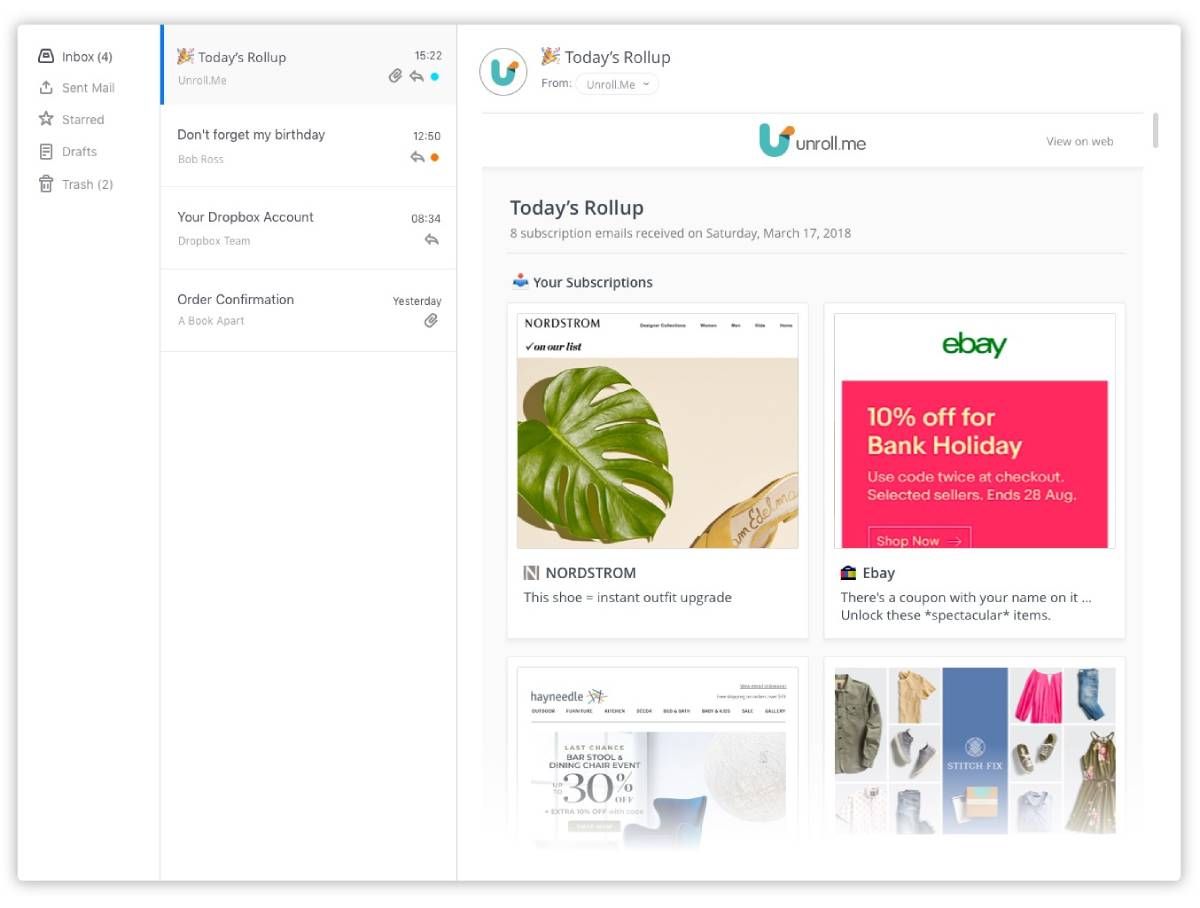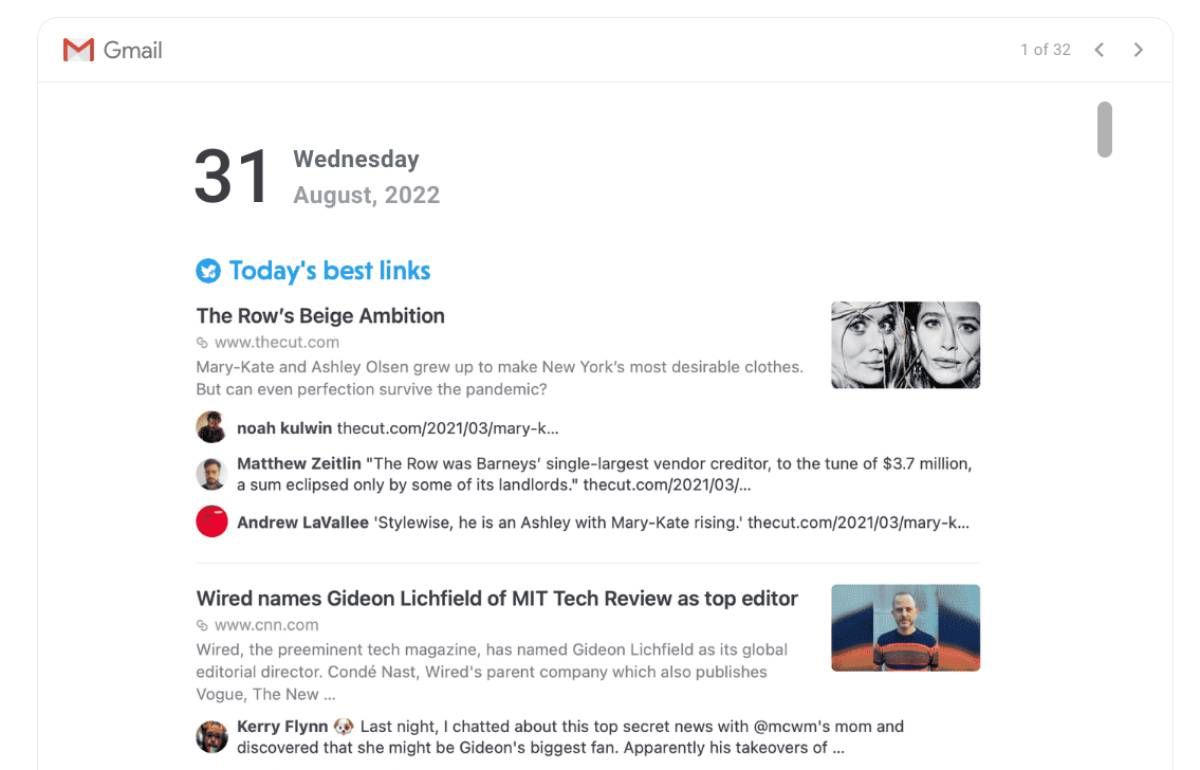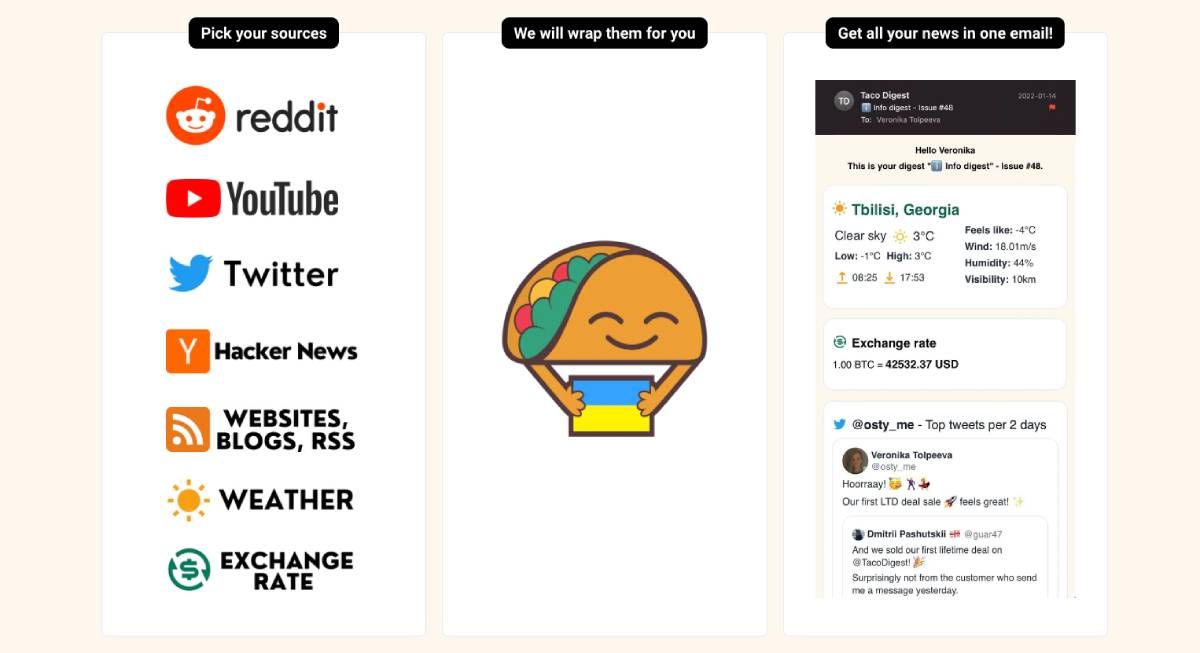If you're feeling overwhelmed by your inbox, take a step back and really look at the emails. One of the best strategies to deal with such messages is to turn them into email digests.
Social media updates, subscription newsletters, bookmarks, and updates, are just some of the examples of such non-urgent emails that land all the time and distract you with a notification. Instead, using email digests can help you batch these into one single mail, as well as have it sent at a date and time of your choosing. Setting them up is easy, and you'll probably check them more often to stay updated.
1. Cortado (Web): Email Digest of Twitter, Reddit, RSS, Wikipedia, and Newsletters
Cortado is perhaps the most comprehensive free tool to create an email digest out of just about any regularly updated online service you want to follow. It's really easy to use, but don't expect a gorgeous well-formatted newsletter. The end result is a simple list of the updates as texts, links, and images at times.
Once you sign up for Cortado, you can add a variety of sources to fetch information from, such as subreddits, Twitter users to follow their tweets, YouTube channels, Wikipedia article of the day, XKCD comic of the day, weather, horoscope, financial index, and tech news like Product Hunt or Hacker News. Of course, you can also add any RSS feed. Cortado also gives you a custom email address to sign up to the best newsletters you want to read, which will be made a part of the digest when you use that email.
Cortado includes customization options unique to each of these sources. For example, you can set how many posts you want to read from Hacker News, or whether to include images in the subreddit you follow and if you want to allow retweets or not from a Twitter user. It's shocking that all of this is free, with no hidden costs or ads.
2. RecapMail (Web): Disposable Inbox With Daily Email Digest
One of the common pieces of advice to avoid email overload is to use a disposable email address when signing up for subscriptions or one-time-use accounts. Sometimes you want to read those subscriptions once in a while but don't want them cluttering up your primary inbox. That's where you need RecapMail.
RecapMail will give you a permanent email address for free and also ask for your preferred primary email. Then, start using the RecapMail email address to sign up for any service, and forget about it. Every day, RecapMail will send an email digest to your inbox with a summary of all messages received that day. It's neatly formatted to give you a quick-glance overview, and you can click to visit the original. It's brilliant.
In your RecapMail account, you can also block subscriptions, set some as a priority, archive old emails, and remove subscriptions. In the default free plan, RecapMail will store all emails for 14 days, but you can upgrade to paid plans to store them for a longer period.
3. Mailist (Web, Chrome, Firefox, Safari): Email Digest of Bookmarks and Read-It-Later Links
Mailist is a surefire way to finally get through all those bookmarks and links you saved to check later. On the surface, it's a pretty standard bookmarking service, but with a twist in the form of a weekly email digest. Through this, you'll get five random links from your saved collection instead of being overwhelmed in figuring out what to read.
You can pick the day of the week and set how many links you want to receive in the digest. The email will be sent at 1300 UTC on that day of the week. Any link you click will be marked as read, while unclicked links will recycle into future digests for random choices.
Mailist also lets you manage your collection by adding tags to articles. In the newsletter settings, you can choose to include all links or point it to specific tags.
Through the browser extensions or the handy bookmarklet for phones, you can keep saving links as you normally bookmark them. You can also import existing bookmarks from browsers or read-it-later apps like Pocket into Mailist. Clearly, this is one of the best apps to bookmark links for later.
Download: Mailist for Chrome | Firefox | Safari (Free)
4. Unroll.Me (Web, Android, iOS): Custom Digest for Existing Email Subscriptions
Unroll.Me has been around for a long time and is more famous as a service to unsubscribe from mailing lists you don't want anymore. But its unheralded RollUp feature is an excellent email digest to stick with existing subscriptions without them clogging up your inbox.
Once you've signed up for Unroll.Me, it will trawl through your inbox to check all the subscriptions you have. Then you can choose whether to unsubscribe from any, or add them to RollUp. RollUp will send a daily email digest of any messages received as a summary, so you can check them at a glance and decide whether to act or not.
Now, it's important to know that in the past, Unroll.Me was caught selling data. After a case with the FTC, the company now makes the privacy implications clear when you're signing up. It's completely free but Unroll.Me will be tracking your behavior and reading non-personal emails i.e. subscription services. If you prefer a paid service focusing more on privacy, you'll find similar features in Leave Me Alone.
Download: Unroll.Me for Android | iOS (Free)
5. Mailbrew (Web): Best Customized Daily Email Digest for Anything
Unlike all the free options in this list, Mailbrew is a paid app. But it's worth mentioning nonetheless because it's the best of all the personal email digest makers out there. Plus, they offer a free 3-week trial period (with no card details) before you decide whether to subscribe for $4.99 per month.
You're ready to start making your beautiful, customized newsletter as soon as you sign up. You'll add widgets for each type of service you want in a vertical daily email. At the top, you can add today's date, weather, and calendar. For the sources, you can add RSS feeds, newsletters, Twitter digest or other customized Twitter feeds, subreddits, YouTube channels, podcasts, stocks, crypto exchanges, Google News, Hacker News, Product Hunt, read later lists, and more. You can also add text and separators to customize the design to your liking.
Naturally, you can decide when to send the email digest and its frequency. You can also create multiple digests and set them for different days so that you still get to catch up on what you want without being overwhelmed. It's easy, looks good, and several subscribers swear by how useful it has been for them.
6. Taco (Web): Beautiful Daily Email Digest for Custom Updates
We would say Taco is "Mailbrew Lite" for those who don't want to pay. It's good-looking like Mailbrew, but the free account lets you create one email digest with up to three sources. If that's all you'll need to follow, then skip Mailbrew and stick to Taco for an eye-pleasing experience in your inbox.
Taco currently supports Reddit, YouTube, Twitter, Hacker News, RSS feeds, weather updates, and exchange rates. Add these in the order you want, and Taco will deliver a beautiful email digest to your inbox daily or per your preferred schedule. And if you fall in love with Taco, you can always get a paid plan for unlimited digests and sources.
Free vs. Paid for Email-Based Privacy
With the range of choices in email digest services, your decision will come down to the features and looks that are right for you. But you should also consider whether you want a free or paid app.
As we have seen with Unroll.Me, email-based apps that are completely free have been known to read your emails or sell user data to advertisers. That might not be a worry for some because it's no worse than what Google, Apple, or Microsoft are already doing in your inbox. But if you're concerned about privacy, paid apps pay more attention to it.

